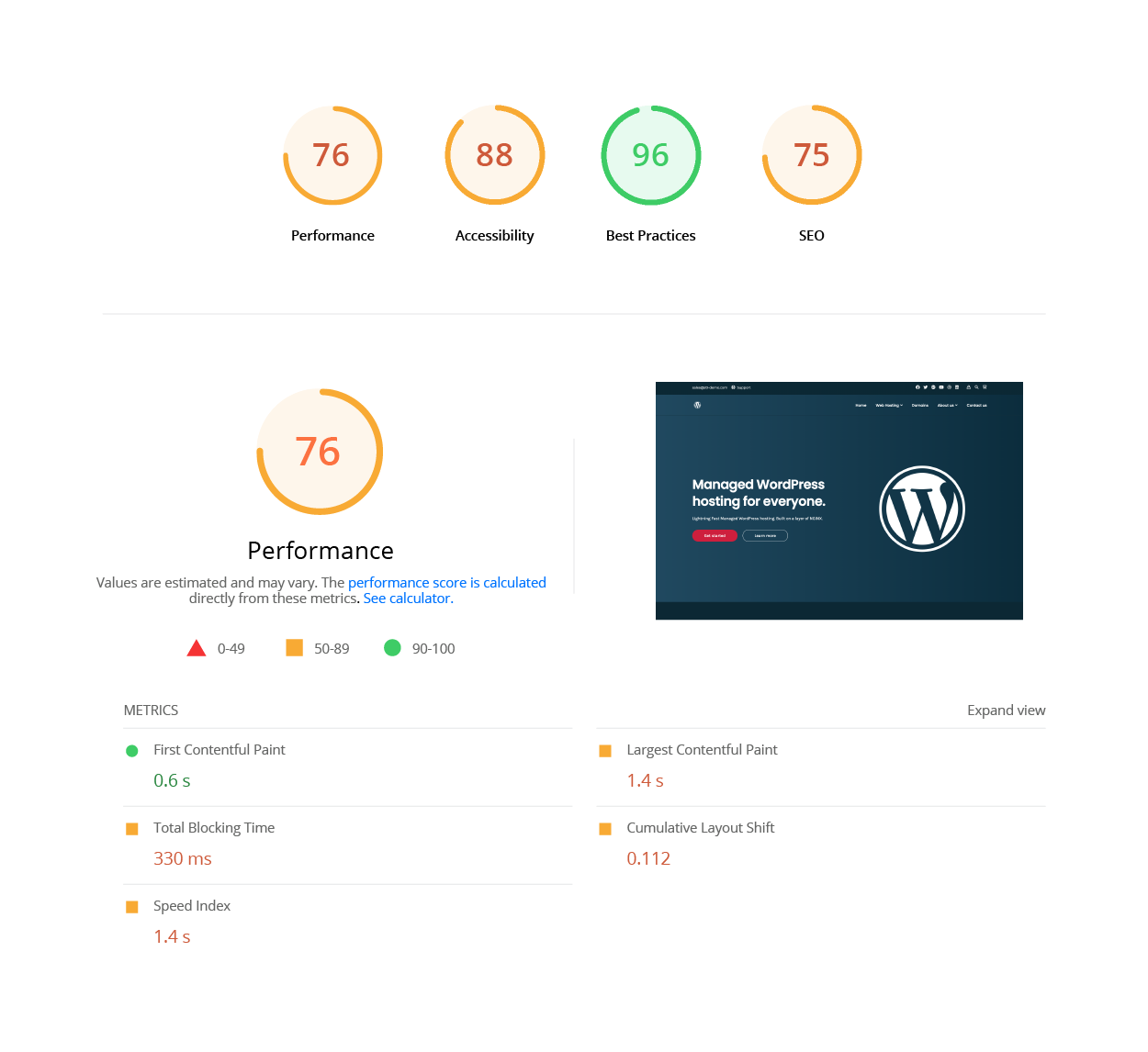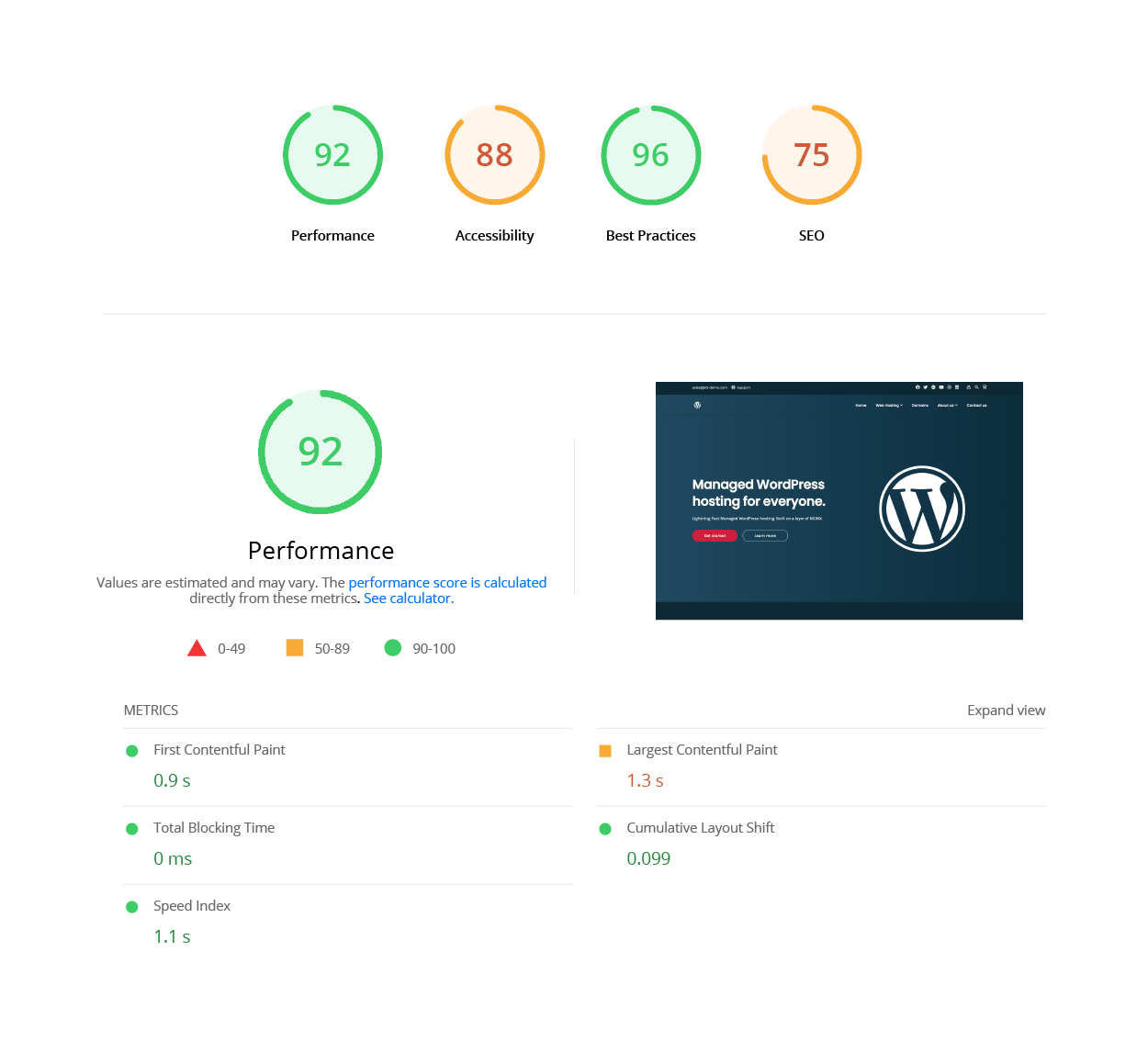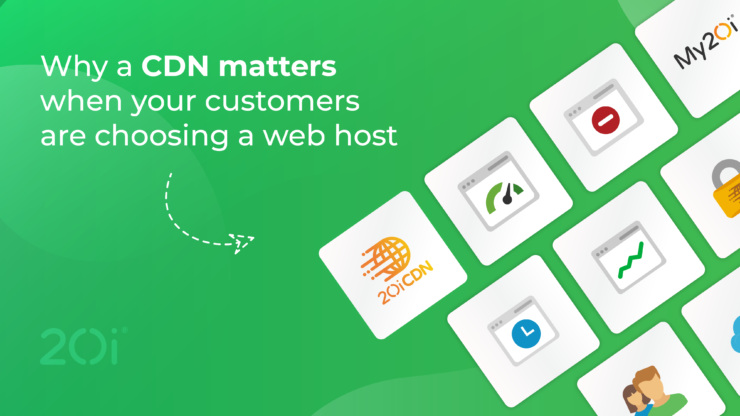Instant access to information, images and videos is now a given for website visitors.
This means blazing-fast page load speeds are a critical feature you need to consistently deliver to attract and retain your hosting customers.
Activating a CDN (Content Delivery Network) for your hosting customers greatly improves how fast their websites are delivered to their users.
In this post we’ll look at why including a CDN in your feature set is a vital component of your hosting product’s proposition.
How do CDNs speed up a site?
A CDN stores cacheable content in each of the networks’ nodes including images, CSS stylesheets and JavaScript file cache.
When users visit a site, their web browser requests the cacheable content from their nearest CDN node, instead of from the origin server.
For example, if a user from Brazil visited a site hosted in our UK data centre, the cached content would be served from the CDN we have in São Paulo, Brazil.
This drastically lowers latency and greatly improves website loading times for users – wherever they are located.
As a CDN delivers cached versions of a website’s contents; bandwidth demands on the origin server are reduced, which allows traffic to be balanced under heavy loads and achieve consistent performance.
Key features of a CDN
Our free CDN, also free with our managed hosting, WordPress Hosting, and Agency Hosting, is used by over 1 million websites every day, with advanced features to speed up your customers’ websites and provide them with smooth loading, every time.
- Image optimisation: Our CDN will scan & optimise your images, resizing, compressing, and converting to fast loading formats such as JPEG XL or WebP. – with no visible loss in quality.
- Edge caching: We utilise edge caching on our CDN nodes, so your website files will be available to your visitors much quicker.
- Code minifcation: Minify and strip whitespace from your code. Our CDN will compress HTML, CSS and JavaScript files to reduce time spent parsing, compiling and executing it.
- Lazy loading: Your above-the-fold content will appear in a browser more quickly by deferring off-screen images or other non-critical resources.
- Automatic OCSP stapling: OCSP Stapling improves the connection speed of the SSL handshake by combining two requests into one – meaning faster loading times for your users.
- HTTP security headers: Manage all your website’s HTTP security headers in a simple dashboard. You can toggle the policies that allow or deny the passing-on of security-related information
- Block IPs and geos: Maintain total control of your and your clients’ websites, with the ability to block IPs and geolocations as you require to keep things safe.
- Wildcard SSL support: Our CDN includes wildcard SSL support, so you can secure subdomains as well as your primary domain using one certificate.
These CDN level optimisations remove the need for several WordPress plugin types, reducing pluginbloat and further improving website load speeds.
Read our blog post about the WordPress Plugins You Don’t Need With 20i.
A CDN for your customers
Unlike other Reseller Hosting providers (most of which don’t offer a CDN at all), we don’t limit CDN access to just your website.
Our CDN is fully integrated into our Reseller platform, which means all your customers can have access too.
You aren’t limited to the number of websites that can use our CDN or charged hefty prices, this is truly free and unlimited.
The free CDN we include is more than comparable to Cloudflare’s Pro plan.

White-label CDN
Our CDN is fully white-label. We don’t force you to use our branding when advertising our CDN – you can call this whatever you like.
Looking at the HTTP headers of a site using our CDN simply shows StackCDN – we aren’t mentioned at all.
As a Reseller, you can provide our CDN to your customers for free as a great selling point, you can charge them extra to use it as an add-on, or you can even bundle CDN access in with higher-tiered products.
You can also pick and choose which CDN features to provide to your customers, including:
- Edge Caching
- Website Optimisation Suite
- Block Visitors
- CDN Statistics
- Security Headers
Does the CDN really make websites faster?
We created a WordPress website to test our CDN, installing 10 resource-hungry plugins and a bloated theme. Some of these plug-ins include:
- Elementor
- WooCommerce
- WP Crontrol
- Akismet
- Contact Form 7
To establish a baseline, we ensured that none of our in-built platform optimisations were enabled, and that the site was not utilising our CDN.
Here is what we found:

Despite having a lot of bloat on the test site in the form of plugins and the theme; the site performed better than expected and received 76 overall for performance.
To reach the coveted 90 – 100 Performance threshold we needed to make some optimisations and improvements.
Typically, you would now need to manually optimise the site by minifying and combining JavaScript, converting and recompressing images, combining CSS and so on.
If you are uncomfortable with doing any of this, you would need to hire a web developer to perform these optimisations for you – which would come at a cost.
Or you could use our CDN that comes with over 40 web optimisations for you to enable/disable instantly with a click of a button.
For the next part of our test we turned our CDN on, activated a handful of image, JavaScript and HTML optimisations and ran the Page Insights again.

By simply activating our CDN and turning on a couple of optimisations; the website’s performance score was boosted from 76 to a 93.
This level of improvement took almost no effort on our part – and is just as easy for Resellers and your customers to implement.
CDN Caching and Pre-Caching
For CDNs to start working effectively, a user needs to visit the relevant website via the node for the content to be processed and cached.
The first visitor to a website using our South Africa node, for example, will see a non-cached version of the site.
Once this initial visit has been made, all subsequent visits to the site via the South Africa node will be served a cached version of the website, improving performance for all subsequent users.
We can go one step further and prevent that first visitor from requesting the non-cached version of the site and experiencing a 76 instead of a 93 through a technique called ‘pre-caching’.
Pre-caching is the process of proactively storing cached versions of a website in CDN nodes before anyone visits of the site.
With pre-caching enabled, the first visitor will have the same, fast loading experience as all later visitors will.
We have made Pre-caching available to our Reseller Hosting customers through the Website Turbo add-on. Resellers can, in turn, make Website Turbo available for clients that demand the highest possible level of performance.
In addition to pre-caching, Website Turbo also comes with other great features, such as improved SQL database storage, caching reports and up to 25% faster processing speeds through the use of high-frequency compute.
Read more Pre-caching here: https://www.20i.com/blog/boosting-performance-with-pre-caching and on Website Turbo here: https://docs.20i.com/web-hosting/website-turbo
Final thoughts
If you are conscious of your customers’ website load speeds and want them to be as fast as possible; offering a CDN is imperative.
You can market our CDN as your own and become part of the few web hosting providers that stand out from the competition.
Combine our free CDN caching and web optimisations with Pre-Caching through our Website Turbo add-on – and your client’s sites will shatter benchmark load times.








Add comment